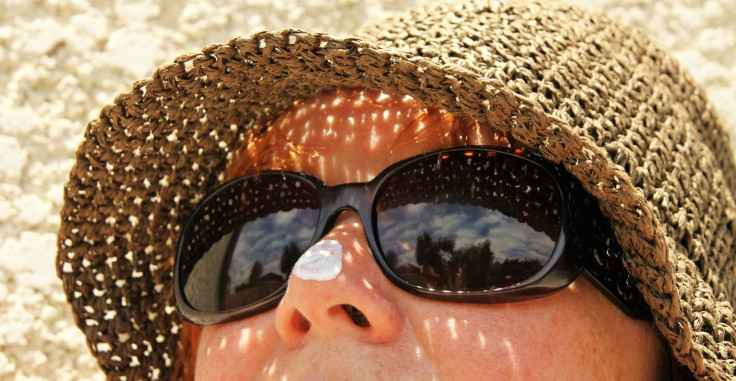SPF In Sunscreen Partly To Blame For Vitamin D Deficiency; Plus Ways To Safely Get Enough Sun

Could slathering on the sunscreen make you deficient in vitamin D? A clinical review published in the May 2017 issue of The Journal of the American Osteopathic Association indicates that some might be a little too zealous about wearing SPF.
Read:Can A Drink Prevent Skin Cancer? Drinkable Sunscreen Company Sued Over 'Osmosis' Protection Claims
The paper states that almost 1 billion people around the world are deficient in the nutrient, however, SPF can’t take all the blame. Other factors like diseases, including Crohn’s, celiac, and diabetes mellitus, as well as lifestyle habits like insufficient exposure to sun and poor dietary sources are also to blame.
“People are spending less time outside and, when they do go out, they’re typically wearing sunscreen, which essentially nullifies the body’s ability to produce vitamin D,” says study co-author Kim Pfotenhauer, DO and assistant professor at Touro University, in a statement. “While we want people to protect themselves against skin cancer, there are healthy, moderate levels of unprotected sun exposure that can be very helpful in boosting vitamin D.”
Diseases that impact malabsorption, like those previously mentioned, can prevent the body from metabolizing vitamin D from food.
According to WebMD, a vitamin D deficiency can actually be harmful. For starters, it plays an important role in calcium absorption to limit your risk of osteoporosis.
"If you have a vitamin D deficiency, particularly in your older years, it can lead to osteoporosis or osteomalacia [bone softening]," said Lona Sandon, RD and assistant professor of clinical nutrition at the University of Texas Southwestern in Dallas, in an article on the website.
The health site also writes that low vitamin levels are linked to a higher risk of type 1 diabetes, muscle pain and certain cancers like that of the breast, colon, prostate and esophagus.
Read:Why Sunshine And Exercise Might Be The Best Way To Ward Off Heart Attacks
Mayo Clinic writes that the recommended intake of vitamin D is about 600 IU a day for people over 18, though older adults past 71 are advised to take 800 IU. It can be found in supplements, like your multivitamin and fortified foods like breakfast cereal, and milk, for example. However, taking a walk outdoors also provides a healthy dose of the nutrient, and it's free!
“You don’t need to go sunbathing at the beach to get the benefits,” says Pfotenhauer. “A simple walk with arms and legs exposed is enough for most people.”
Of course baking all day in the sun isn’t a good idea either.
Typical symptoms of vitamin D deficiency include fatigue, bone pain, wounds that don’t heal quickly, hair loss and depression, according to Authority Nutrition. Thankfully, it’s easy to solve with Pfotenhauer’s suggestion of including more walks or vitamin-D enriched foods into your diet, as long as you don’t go overboard.
See Also:
Which States Are The Best And Worst For Kids' Health? New Survey Results For All 50 States



























